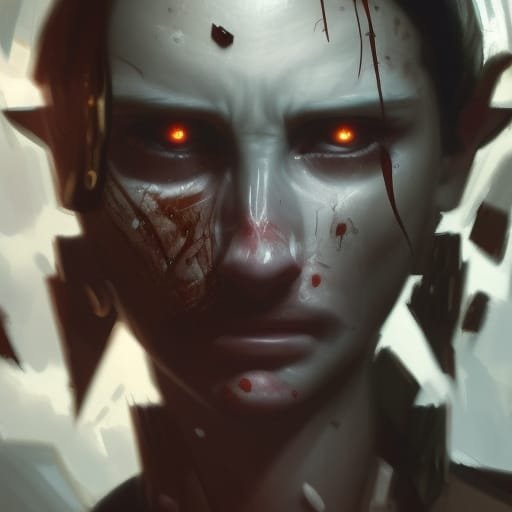Unlocking the Power of Character Motivation
Introduction:
As a fantasy writer, creating compelling characters is key to immersing readers in your world. One way to do this is through understanding the psychology of character motivation.
In this post, I’ll explore what motivates characters and how you can use this knowledge to create dynamic and believable characters in your writing.
Having believable characters is crucial to keeping the readers engaged in your work - check out this post for more on that.
The Importance of Character Motivation:
Every character has a reason for doing what they do.
Understanding this reason is crucial to making your characters relatable and believable. Without clear motivation, your characters can come across as flat or two-dimensional, which can turn readers off from your story. By delving into the psychology of motivation, you can create characters that resonate with readers and keep them engaged.
But its one thing for their ambition to be King of the Pirates, and something completely different for it to be deep and complex. What your story is about and the target market you’re writing will dictate which kind of motivation you would want to write.
The Psychology of Character Motivation:
At the core of character motivation is the idea of needs and wants.
Every character has something they want, whether it's a physical object, a relationship, or a sense of purpose. These wants are driven by deeper needs, such as the need for love, safety, or validation. Understanding these underlying needs is key to creating characters that feel real and relatable.
The way to do this is to look to yourself and the people around you.
What are the motivations?
Ambitions?
Fears?
Desires?
Reality reflects art, and art reflects reality.
The answer to working out your character’s motivations is all around you.
Here a 5 techniques to use:
Maslow's Hierarchy of Needs: This theory suggests that people are motivated by a hierarchy of needs ranging from basic physiological needs to self-actualisation.
Self-Determination Theory: This theory proposes that motivation is driven by three fundamental needs – autonomy, competence, and relatedness.
Expectancy Theory: This theory proposes that people are motivated by the belief that their efforts will lead to desired outcomes, and that the outcomes will be valuable to them.
Goal-Setting Theory: This theory suggests that people are motivated by specific, challenging goals and that the process of setting and working towards these goals can lead to increased performance.
Attribution Theory: This theory focuses on how people explain the causes of their own behaviour and that of others, and how these attributions can impact motivation.
Using Motivation in Your Writing:
Once you understand what motivates your characters, you can use this knowledge to shape your story.
Every decision your characters make should be driven by their wants and needs, whether they're conscious of it or not. By incorporating these motivations into your plot, you can create a story that feels organic and grounded in reality.
Pro tip: have a note book beside you as you write, jot down each characters motivations and keep it as a reference.
Examples of Motivated Characters in Fantasy:
Some of the most memorable characters in fantasy are driven by their motivations. Take Harry Potter, for example. Harry's desire for a sense of belonging and connection drives his actions throughout the series. Or consider Katniss Everdeen from The Hunger Games, whose motivation to protect her family fuels her actions in the arena. These characters are memorable because their motivations drive the plot and make them feel real.
Lieut from Chaos of Choice is essentially searching for the truth.
Melodin from The Legacy of the Spirit Rings is seeking a sense of belonging in a world that shuns him.
Kusan from Crime in Me’tra wants nothing more than to be free.
What motivates your characters?
What motivates you?
Tips for Creating Motivated Characters:
To create motivated characters in your own writing, keep these tips in mind:
Understand your character's wants and needs.
Make sure your character's motivations are consistent and believable.
Use character motivation to drive the plot forward.
Allow your characters to change and grow over time.
Don't be afraid to use darker desires as your character’s motivations
Conclusion:
Understanding the psychology of character motivation is key to creating compelling characters in fantasy writing.
By understanding what drives your characters, you can create a story that feels grounded in reality and resonates with readers. Use these tips to create motivated characters that will keep your readers engaged from start to finish.
Til next time.
If you want to learn more about building a believable and immersive fantasy world in your writing check out my other posts:
PS - Don’t forget to sign up below for updates on new book releases and blog articles. Also, drop by my Patreon and socials


